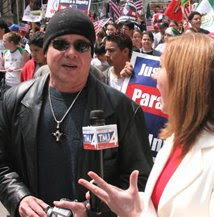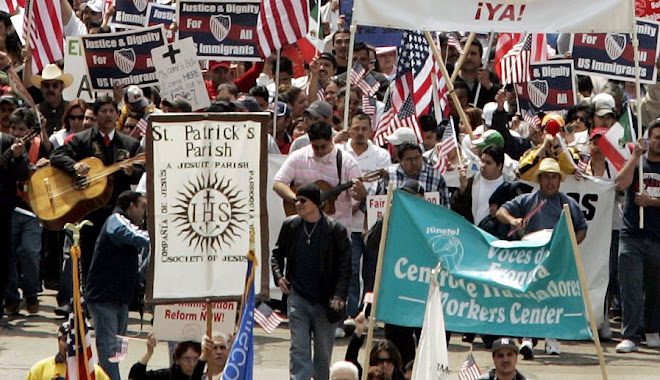N'bouke allegedly helped smuggle tons of ivory out of Togo.
By H. Nelson Goodson
August 8, 2013
Lome, Togo - On Tuesday, Emile Edouwodzi N'bouke, 58, aka, "The Boss" of the illegal ivory trade in Africa was arrested in Lome by the Togo Anti-trafficking police, according to BBC. N'bouke is considered the kingpin of the ivory smuggling trade in Togo, according to Col Yao Kondi, the head of the Anti-trafficking Squad. The Togo's Environment Minister Dede Ahoefa Ekoune confirmed N'bouke's arrest and says, the government is taking the illegal ivory smuggling trade seriously. N'bouke has been connected to the slaughter of more than 10,000 elephants, since 1970 through his illegal trade, according to Ekoune.
N'bouke was part of an investigative program aired on Wednesday by ABC News Nightline titled "White Gold in the Black Market." N'bouke owns a shop that had at least 500 pounds of ivory from 30 elephants for sale. He told undercover investigators that he got it legally before 2008 and that he could smuggle ivory to China and other parts of Asia without being detected by customs.
One of the investigators included Ofir Drori, a self-made wildlife crime fighter and founder of an organization called the Last Great Ape, which is attributed of providing undercover video and surveillance of illegal trafficking of ivory, birds, apes and large cats that led to 900 arrests. Drori says, N'bouke's arrest was the first of its kind in the West African country. He began investigating N'bouke in late 2012.
N'bouke had been hiding after he was alerted by corrupt officials from the Ministry of Environment that he was going to be busted. It took some time, but the anti-trafficking police discovered five elephant ivory tusks in N'bouke's shop. N'bouke has denied the charges, but says that he only deals with legal ivory and bones that are carve into items to sell.
In 2008, the ivory trade was outlawed in Togo and today about 60 elephants remain alive in a protected national park refuge in the country. Suspects caught trafficking ivory can face between 10 months to three years in prison.
Drori has been fighting corrupted officials, police and military that look the other way while the illegal ivory smuggling trade flourish in the area.
Togo officials say, that the ivory is smuggled into Togo from the West African sub-region, including Benin, Burkina Faso, Cameroon, Chad, Ghana and the Ivory Coast, according to BBC.
The going rate per pound of ivory in the black market is $1,300, but a large carved piece can cost between $13,000 to $30,000 or more.
In July, Hong Kong customs officials seized $2.2 million (2 tons of ivory tusks) hidden in a cargo from Togo. Another shipment of illegal trafficking netted $12 million of ivory (6 tons of tusks from more than 700 elephants) hidden in a container of mahogany wood that was found by Malaysian customs. The ivory shipment was headed to China.
Nightline in its undercover investigative report also showed a poacher that claimed he killed his 500th elephant. The elephant suffered for hours before it died because the poacher didn't have enough bullets to spare, according to Nightline.






No comments:
Post a Comment